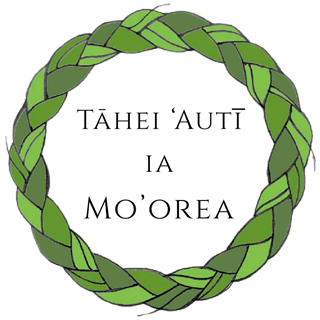Positioning of the Tahei Auti I’a Moorea federation concerning the construction of a Tahiti pas cher / Gemo / Home decoration commercial building on plot C13 of Paetou land
After two years of hard-fought legal battles, the Federation finally lost its case against the developer and investor on a technicality, without challenging the merits of the case.
While part of the population of Moorea is delighted with the project on the grounds that it will create jobs and avoid costly trips to Papeete, the Federation would like to point out a few essential facts:
The finalization of the project is based on a double infringement: unauthorized backfilling using illegally extracted materials (PV d’infraction n° 07-2022/VP/DCA ) and an ex post facto regularization granted on the basis of falsified documents.The overall impression that emerges from such maneuvers is disastrous.
The overall impression that emerges from such maneuvers is disastrous: a developer who considers himself above the law can achieve his ends in full view of a powerless administration.
The initial Paetou site constituted a semi-humid biotope unique to Moorea, historically important (former royal family land) and of undoubted ecological interest (feeding ground for the sacred egret and the eyebrowed duck, both protected species). The destruction of this site and the parcelling out of part of it for the creation of an industrial zone testifies to an open contempt for the values that form the foundation of the island’s identity and its inhabitants. This loss of identity cannot be quantified in monetary terms, but its consequences are already all too visible in Tahiti’s urban areas.
The economic sustainability of the shops to be set up on this plot of land seems very fragile, given the small customer base (18,000 inhabitants) and the fact that many of the products to be offered are already available from local shops (Champion, Polymat) or will be in the future Maharepa shopping zone. None of what will be sold in these stores will be innovative or locally-processed, and only importers and investors will benefit, further reinforcing our dependence on imported products, mainly from Asia.
Our port, road, drinking water and waste collection infrastructures are already saturated, and these businesses will make the situation even worse in a kind of headlong rush that takes no account of our island reality: our limited space means we have to set limits to the development model proposed by the promoters of this project.
It’s no secret that the managers of this type of company are generally expatriates, and that the jobs reserved for the local population are mostly menial. The future of this country also lies in the capacity of the population to undertake on their own initiative, which is not encouraged by the development model embodied by this project.
It’s also worth remembering that an industrial zone exists a little less than 1 kilometer away, and that, like Tahiti Ménager, this surface area would be perfectly at home there without affecting a wetland and without destroying the few coconut trees we have left.
Finally, if the concept of food independence was on everyone’s lips at the end of the Covid crisis, we have to admit that the model proposed by these new stores is the most convincing counter-example. The sterilization of agricultural land by concrete is taking place before our very eyes, and we owe it to ourselves to react.
